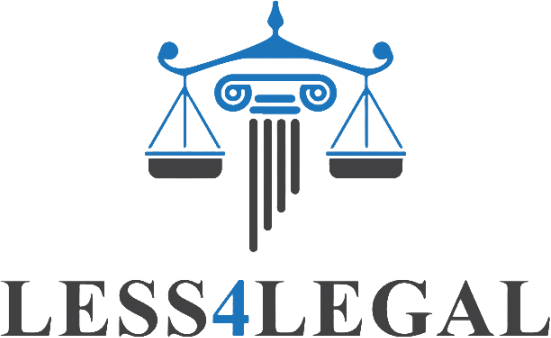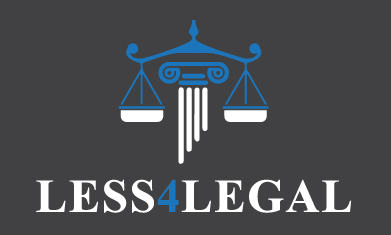
Dividing assets during a divorce can be a complex and emotionally-charged process. It involves more than just the physical distribution of property; it often entails allocating financial resources, investments, and sentimental belongings between two parties who are parting ways. In the first place, it is essential to approach asset division with a clear understanding of the laws governing your jurisdiction and a fair mindset to ensure an equitable outcome for both parties.
Moreover, the division of assets goes beyond merely splitting everything down the middle – it requires careful consideration of various factors such as the contributions of each party during the marriage, future financial needs, and the well-being of any dependents involved. Without a doubt, the process can become contentious, especially if there are disagreements over the valuation of assets or the significance of certain items to each party.
As a matter of fact, seeking professional guidance from a financial advisor or lawyer specialized in divorce proceedings can be immensely beneficial in navigating this intricate terrain. They can provide objective insights, offer solutions for potential roadblocks, and help you understand your rights and entitlements under the law.
Dividing assets fairly is not just about the tangible possessions but also about ensuring a sense of closure and a fresh start for both parties as they embark on separate paths. It is a pivotal aspect of the divorce process that can significantly impact the financial well-being and emotional health of everyone involved.
Equally important, ensuring transparency throughout the asset division process is crucial. Open communication between both parties can help mitigate misunderstandings and facilitate a smoother resolution. This transparency extends to disclosing all assets, whether they are visible or not, and being honest about their value. Honesty is key in this phase, as it paves the way for a more amicable separation and fair distribution.
In reality, emotions often run high during a divorce, making it challenging to remain logical and objective when dividing assets. Despite this, it is essential to try to keep emotions in check and focus on reaching a practical agreement that considers the long-term welfare of both individuals. It may be beneficial to create a list of priorities and compromises to guide the negotiations.
Moreover, another key point to remember is that not all assets are as they seem at first glance. Some assets may come with hidden costs or tax implications that need to be factored into the division. Seeking advice from a financial expert can shed light on these aspects and prevent any surprises down the road.
Most compelling evidence indicates that fairness is a subjective concept, and what feels fair to one party may not seem equitable to the other. This is where compromise plays a significant role. Flexibility and willingness to negotiate can lead to a more satisfactory outcome for both parties, leaving room for a fair resolution that considers the unique circumstances of the divorce. Read more here
Sharing Equitably: A Guide to Dividing Wealth
To compare, it is crucial for both parties involved in a divorce to recognize that the division of assets encompasses more than just the physical aspect of distribution. It delves into intertwined financial commitments, emotional attachments, and future considerations that can greatly impact the post-divorce well-being of each individual. Acknowledging the multifaceted nature of asset division is essential in approaching the process with sensitivity and clarity.
In particular regard to future financial needs, it’s imperative to take into account the long-term financial stability of both parties post-divorce. This may involve contemplating factors such as retirement plans, debts, ongoing financial obligations, and potential fluctuations in income. It’s crucial to strike a balance that ensures both parties can sustain themselves financially and maintain their quality of life independently.
Simultaneously, preserving the emotional health of those involved is equally significant. Divorce can be a highly emotional and trying experience, and the division of assets can add an additional layer of stress. Thus, prioritizing open communication, empathy, and a willingness to compromise can help foster a more amicable resolution. Recognizing and addressing emotional needs alongside financial considerations can contribute to a smoother transition into separate lives.
For instance, by engaging in constructive dialogue and seeking professional guidance, both parties can navigate the asset division process with more clarity and objectivity. This approach not only aids in reaching a fair distribution of wealth but also lays the groundwork for a more peaceful and respectful separation.
A prime example being the importance of maintaining a forward-looking perspective throughout the asset division process. By focusing on long-term financial well-being, emotional closure, and mutual respect, both parties can move forward with a greater sense of empowerment and readiness for the next chapter in their lives. Learn more here

In essence, approaching the division of assets during a divorce requires a delicate balance of financial prudence, emotional sensitivity, and legal awareness. By acknowledging the complexities involved, both parties can work towards a fair and amicable resolution that considers the well-being of all individuals affected. Seeking professional guidance and maintaining open communication are key pillars in navigating this challenging terrain.
As couples navigate the intricate process of dividing wealth, they must prioritize understanding, compromise, and transparency to ensure a smoother transition into separate lives. The division of assets is not merely about splitting belongings; it symbolizes the closing of one chapter and the beginning of another. By fostering a spirit of cooperation and empathy, couples can reach a resolution that sets the stage for healing and new beginnings.
Ultimately, the division of assets in a divorce is a significant milestone that marks the end of a shared financial journey and the start of individual financial paths. By embracing transparency, fairness, and open communication, couples can pave the way for a more equitable and peaceful separation. It is through mutual respect, compromise, and understanding that couples can emerge from this process with a renewed sense of stability and clarity moving forward.
In conclusion, navigating the division of assets during a divorce is a multifaceted task that requires careful consideration, emotional intelligence, and legal guidance. By keeping long-term financial well-being and emotional health at the forefront, couples can work towards a fair and respectful resolution that sets the foundation for a brighter future. Embracing the challenges with resilience and cooperation can transform this complex process into an opportunity for personal growth and a fresh start. Find out more here

